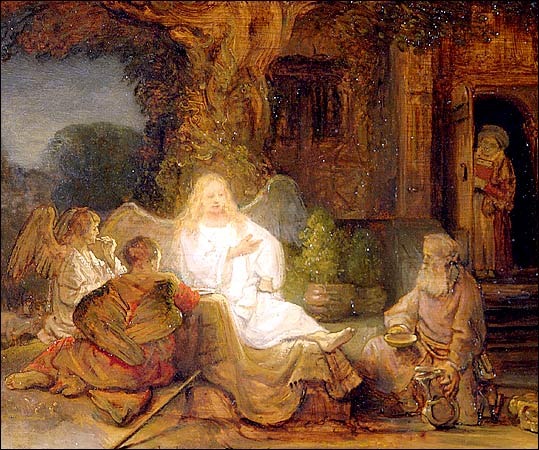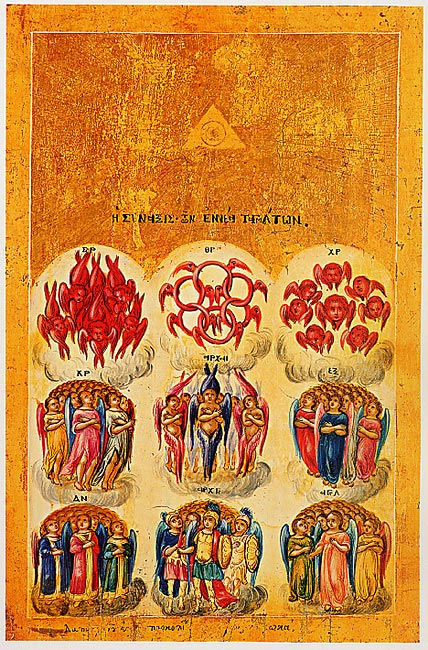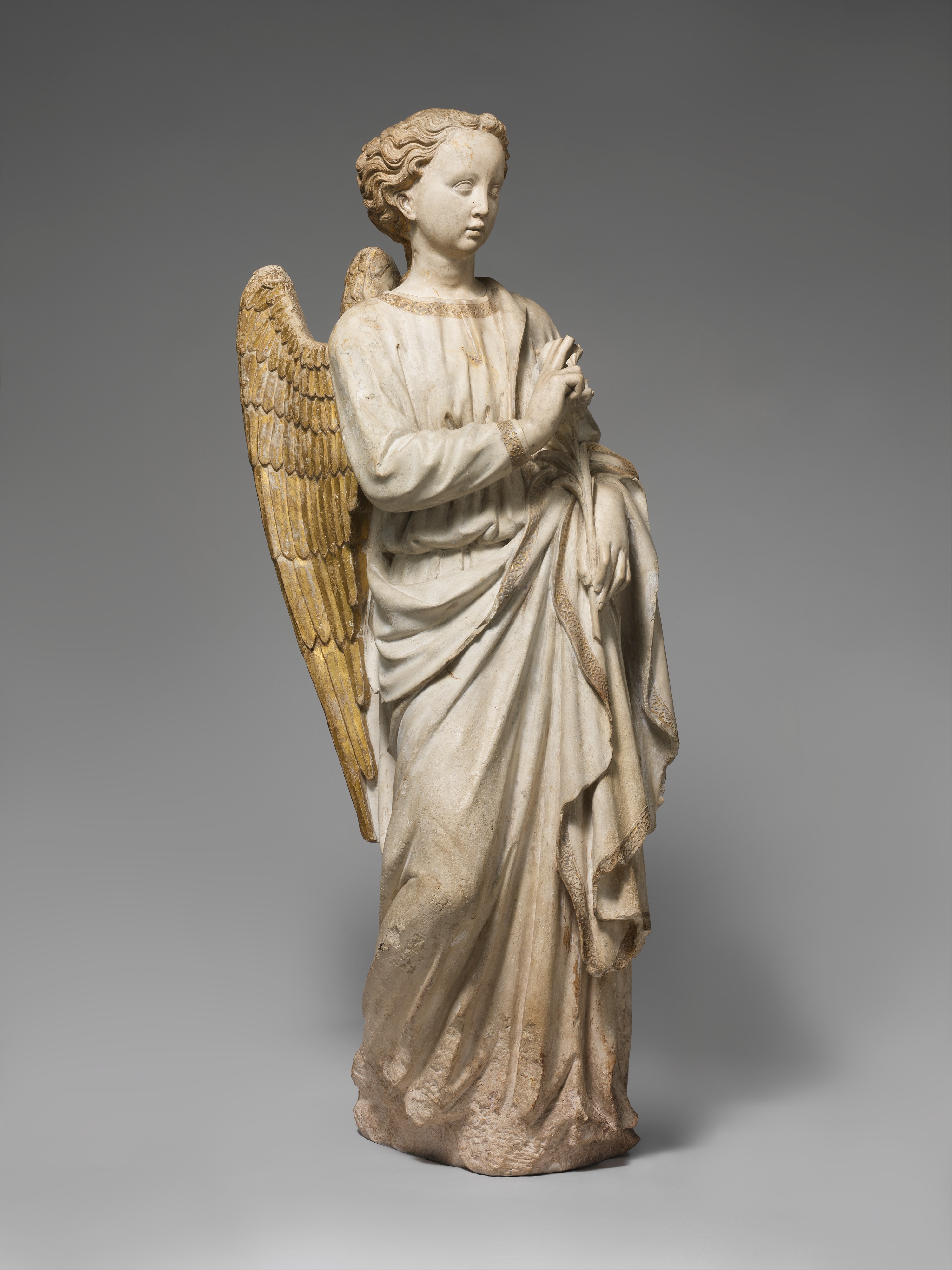|
Archangel
Archangels () are the second lowest rank of angel in the Catholic hierarchy of angels, based on and put forward by Pseudo-Dionysius the Areopagite in the 5th or 6th century in his book ''De Coelesti Hierarchia'' (''On the Celestial Hierarchy''). The Bible itself uses the term “archangel” two times referring to the angel Michael only in the New Testament. The Bible does not mention a particular hierarchy of angels in any detail aside from this. The word is usually associated with the Abrahamic religions and many offshoots they are historically associated with. ''Archangel'' is derived from Ancient Greek, Greek (), with the Greek prefix meaning 'chief'. In Catholic theology, archangels constitute the second-lowest rank of angel; much of modernized imaging of Archangels as we have today likely stems from the etymology of their name, as well as their presentation in John Milton's ''Paradise Lost''. In many offshoots of Judaism, with the oldest text coming from Enoch 1, the ... [...More Info...] [...Related Items...] OR: [Wikipedia] [Google] [Baidu] |
Michael (archangel)
Michael, also called Saint Michael the Archangel, Archangel Michael and Saint Michael the Taxiarch is an archangel and the warrior of God in Christianity, Judaism, and Islam. The earliest surviving mentions of his name are in third- and second-century BC Jewish works, often but not always apocalyptic, where he is the chief of the angels and archangels, and he is the guardian prince of Israel and is responsible for the care of the Israelites, people of Biblical Israel, Israel. Christianity conserved nearly all the Jewish traditions concerning him, and he is mentioned explicitly in Revelation 12:7–12, where he does battle with Satan, and in the Epistle of Jude, where the archangel and the devil dispute over the body of Moses. Old Testament and Apocrypha The Book of Enoch lists him as one of seven archangels (the remaining names are Uriel, Raguel (angel), Raguel, Raphael (archangel), Raphael, Sariel, Gabriel, and Remiel), who, in the Book of Tobit, “stand ready and ente ... [...More Info...] [...Related Items...] OR: [Wikipedia] [Google] [Baidu] |
Raphael (archangel)
Raphael ( , ; "God has healed") is an archangel first mentioned in the Book of Tobit and in 1 Enoch, both estimated to date from between the 3rd and 2nd century BCE. In later Jewish tradition, he became identified as one of the three heavenly visitors entertained by Abraham at the Oak of Mamre. He is not named in either the New Testament or the Quran, but later Christian tradition identified him with healing and as the angel who stirred waters in the Pool of Bethesda in John 5:2–4, and in Islam, where his name is Israfil, he is understood to be the unnamed angel of Quran 6:73, standing eternally with a trumpet to his lips, ready to announce the Day of Judgment. In Gnostic tradition, Raphael is represented on the Ophite Diagram. Origins in post-exilic literature In the Hebrew Bible, the word () means messenger or representative; either human or supernatural in nature. When used in the latter sense it is translated as "angel". The original mal'akh lacked both individua ... [...More Info...] [...Related Items...] OR: [Wikipedia] [Google] [Baidu] |
Gabriel
In the Abrahamic religions (Judaism, Christianity, Islam), Gabriel ( ) is an archangel with the power to announce God's will to mankind, as the messenger of God. He is mentioned in the Hebrew Bible, the New Testament and the Quran. Many Christian traditions – including Eastern Orthodoxy, Catholicism, Lutheranism, and Anglicanism – revere Gabriel as a saint. In the Hebrew Bible, Gabriel appears to the prophet Daniel (biblical figure), Daniel to explain his visions (Daniel 8:15–26, Daniel 9, 9:21–27). The archangel also appears in the Book of Enoch and other ancient Jewish writings not preserved in Hebrew. Alongside the archangel Michael (archangel), Michael, Gabriel is described as the guardian angel of the Israelites, people of History of ancient Israel and Judah, Israel, defending it against the angels of the other peoples. In the New Testament, the Gospel of Luke relates the Annunciation, in which the angel Gabriel appears to Zechariah (New Testament figur ... [...More Info...] [...Related Items...] OR: [Wikipedia] [Google] [Baidu] |
Uriel
Uriel , Auriel ( ''ʾŪrīʾēl'', " El/God is my Flame"; ''Oúriḗl''; ''Ouriēl''; ; Geʽez and Amharic: or ) or Oriel ( ''ʾÓrīʾēl'', "El/God is my Light") is the name of one of the archangels who is mentioned in Rabbinic tradition and in certain Christian traditions. He is well known in the Russian Orthodox tradition and in folk Catholicism (in both of which he is considered to be one of the seven major archangels) and recognised in Anglicanism as the fourth archangel. He is also well known in European esoteric medieval literature. Uriel is also known as a master of knowledge and the archangel of wisdom. In apocryphal, kabbalistic, and occult works, Uriel has been equated (or confused) with Urial, Nuriel, Uryan, Jeremiel, Vretil, Sariel, Suriel, Puruel, Phanuel, Jacob, Azrael, and Raphael. In the Secret Book of John, an early Gnostic work, Uriel is placed in control of the demons who help Yaldabaoth create Adam. Uriel, Auriel or Oriel (male) / Urielle, ... [...More Info...] [...Related Items...] OR: [Wikipedia] [Google] [Baidu] |
Paradise Lost
''Paradise Lost'' is an Epic poetry, epic poem in blank verse by the English poet John Milton (1608–1674). The poem concerns the Bible, biblical story of the fall of man: the temptation of Adam and Eve by the fallen angel Satan and their expulsion from the Garden of Eden. The first version, published in 1667, consists of ten books with over ten thousand lines of Verse (poetry), verse. A second edition followed in 1674, arranged into twelve books (in the manner of Virgil's ''Aeneid'') with minor revisions throughout. It is considered to be Milton's masterpiece, and it helped solidify his reputation as one of the greatest English poets of all time. At the heart of ''Paradise Lost'' are the themes of free will and the moral consequences of disobedience. Milton seeks to "justify the ways of God to men," addressing questions of predestination, human agency, and the nature of good and evil. The poem begins in medias res, with Satan and his fallen angels cast into Hell after their ... [...More Info...] [...Related Items...] OR: [Wikipedia] [Google] [Baidu] |
Hierarchy Of Angels
In the angelology of different religions, a hierarchy of angels is a ranking system of angels. The higher ranking angels have greater power and authority than lower ones, and different ranks have differences in appearance, such as varying numbers of wings or faces. Abrahamic religions Judaism The Jewish angelic hierarchy is established in the Hebrew Bible, Talmud, Rabbinic literature, and traditional Jewish liturgy. They are categorized in different hierarchies proposed by various theologians. For example, Maimonides, in his '' Mishneh Torah'' or '' Yad ha-Chazakah: Yesodei ha-Torah'', counts ten ranks of angels. The '' Zohar'', in ''Exodus 43a'', also lists ten ranks of angels. Jacob Nazir, in his '' Maseket Atzilut'', also listed ten ranks of angels. Abraham ben Isaac of Granada, in his '' Berit Menuchah'', also listed ten ranks of angels. All of them are ranked with 1 being the highest, and all subsequent numbers being lower ranks. Christianity The most influen ... [...More Info...] [...Related Items...] OR: [Wikipedia] [Google] [Baidu] |
Angel
An angel is a spiritual (without a physical body), heavenly, or supernatural being, usually humanoid with bird-like wings, often depicted as a messenger or intermediary between God (the transcendent) and humanity (the profane) in various traditions like the Abrahamic religions. Other roles include protectors and guides for humans, such as guardian angels and servants of God. In Western belief-systems the term is often used to distinguish benevolent from malevolent intermediary beings. Emphasizing the distance between God and mankind, revelation-based belief-systems require angels to bridge the gap between the earthly and the transcendent realm. Angels play a lesser role in monistic belief-systems, since the gap is non-existent. However, angelic beings might be conceived as aid to achieve a proper relationship with the divine. Abrahamic religions describe angelic hierarchies, which vary by religion and sect. Some angels have specific names (such as Gabriel or Mich ... [...More Info...] [...Related Items...] OR: [Wikipedia] [Google] [Baidu] |
Israfil
Israfil (, ''ʾIsrāfīl) o''r Israfel Lewis, James R., Evelyn Dorothy Oliver, and S. Sisung Kelle, eds. 1996. ''Angels A to Z''. Visible Ink Press. . p. 224. is the angel who will blow the trumpet to signal ''Qiyamah'' (the Day of Judgment) in Islam. Though unnamed in the Quran, he is one of the four archangels in Islamic tradition, along with Michael, Gabriel, and Azrael. The "Book of Dead" described Israfil as the oldest of all archangels. He is commonly thought of as the counterpart of the Judeo-Christian archangel Raphael.Gabriel " ''''. Israfil is portrayed as writing the destiny of humans and all commands of |
Prince
A prince is a male ruler (ranked below a king, grand prince, and grand duke) or a male member of a monarch's or former monarch's family. ''Prince'' is also a title of nobility (often highest), often hereditary, in some European states. The female equivalent is a princess. The English word derives, via the French word ''prince'', from the Latin noun , from (first) and (head), meaning "the first, foremost, the chief, most distinguished, noble ruler, prince". In a related sense, now not commonly used, all more or less sovereign rulers over a state, including kings, were "princes" in the language of international politics. They normally had another title, for example king or duke. Many of these were Princes of the Holy Roman Empire. Historical background The Latin word (older Latin *prīsmo-kaps, ), became the usual title of the informal leader of the Roman senate some centuries before the transition to empire, the '' princeps senatus''. Emperor Augustus establishe ... [...More Info...] [...Related Items...] OR: [Wikipedia] [Google] [Baidu] |
Judaism
Judaism () is an Abrahamic religions, Abrahamic, Monotheism, monotheistic, ethnic religion that comprises the collective spiritual, cultural, and legal traditions of the Jews, Jewish people. Religious Jews regard Judaism as their means of observing the Mosaic covenant, which they believe was established between God in Judaism, God and the Jewish people. The religion is considered one of the earliest monotheistic religions. Jewish religious doctrine encompasses a wide body of texts, practices, theological positions, and forms of organization. Among Judaism's core texts is the Torah—the first five books of the Hebrew Bible—and a collection of ancient Hebrew scriptures. The Tanakh, known in English as the Hebrew Bible, has the same books as Protestant Christianity's Old Testament, with some differences in order and content. In addition to the original written scripture, the supplemental Oral Torah is represented by later texts, such as the Midrash and the Talmud. The Hebrew ... [...More Info...] [...Related Items...] OR: [Wikipedia] [Google] [Baidu] |
Eastern Orthodox Church
The Eastern Orthodox Church, officially the Orthodox Catholic Church, and also called the Greek Orthodox Church or simply the Orthodox Church, is List of Christian denominations by number of members, one of the three major doctrinal and jurisdictional groups of Christianity, with approximately 230 million baptised members. It operates as a Communion (Christian), communion of autocephalous churches, each governed by its Bishop (Orthodox Church), bishops via local Holy Synod, synods. The church has no central doctrinal or governmental authority analogous to the pope of the Catholic Church. Nevertheless, the Ecumenical Patriarch of Constantinople is recognised by them as ''primus inter pares'' (), a title held by the patriarch of Rome prior to 1054. As one of the oldest surviving religious institutions in the world, the Eastern Orthodox Church has played an especially prominent role in the history and culture of Eastern Europe, Eastern and Southeastern Europe. Since 2018, the ... [...More Info...] [...Related Items...] OR: [Wikipedia] [Google] [Baidu] |
Abrahamic Religions
The term Abrahamic religions is used to group together monotheistic religions revering the Biblical figure Abraham, namely Judaism, Christianity, and Islam. The religions share doctrinal, historical, and geographic overlap that contrasts them with Indian religions, Iranian religions, and East Asian religions. The term has been introduced in the 20th century and superseded the term Judeo-Christianity, Judeo-Christian tradition for the inclusion of Islam. However, the categorization has been criticized by some for oversimplification of different cultural and doctrinal nuances. For example, Islam shares cultural and doctrinal exchange from Asian religions, which Abrahamic religions are usually contrasted with. Usage The term ''Abrahamic religions'' (and its variations) is a collective religious descriptor for elements shared by Judaism, Christianity, and Islam. It features prominently in interfaith dialogue and political discourse but also has entered Academic discourse socializati ... [...More Info...] [...Related Items...] OR: [Wikipedia] [Google] [Baidu] |








